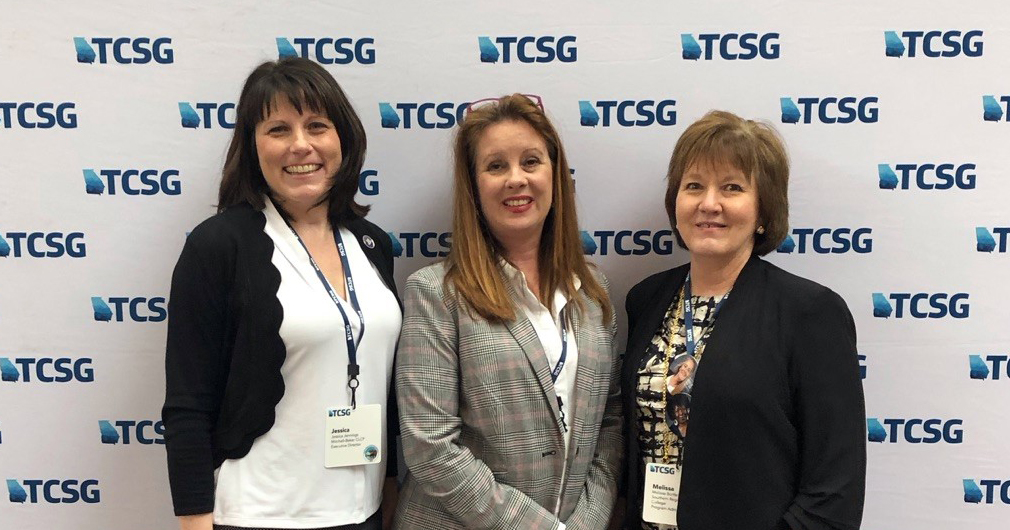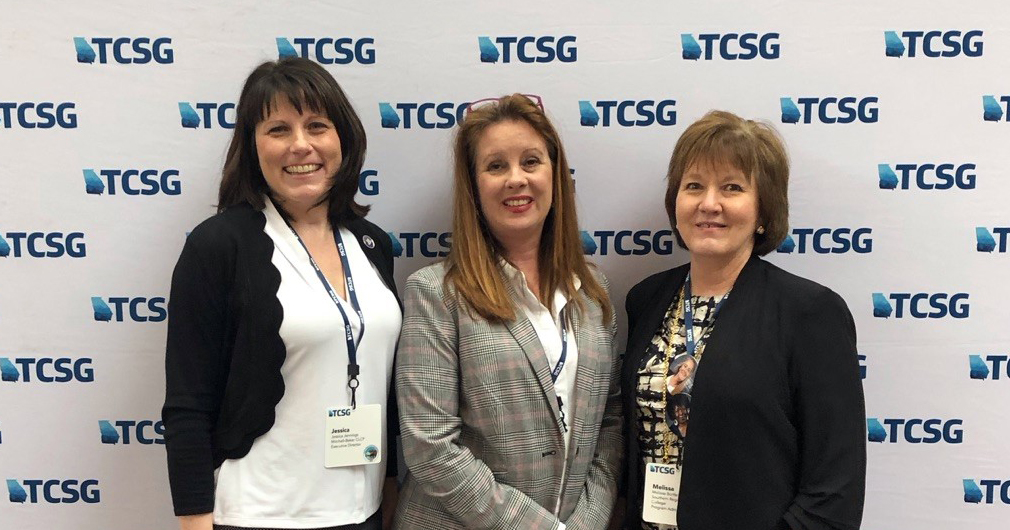On March 10, 2020, two Southwest Georgia Certified Literate Communities were honored as Legacy Communities in celebration of the 30-year anniversary of the Certified Literate Community Program (CLCP). SWGA Regional and Tifton-Tift County CLCPs were each recognized for the work they have done over the past 30 years. The SWGA Regional CLC includes Baker, Calhoun, Colquitt, Decatur, Dougherty, Early, Grady, Lee, Miller, Mitchell, Seminole, Terrell, Thomas and Worth counties.

In 1990, under the leadership of Governor Zell Miller, Georgia launched the Certified Literate Community Program (CLCP) statewide as a means of combating the systemic problem of low literacy. The Governor’s office place the new program in the care of the Office of Adult Education at the Technical College System of Georgia (TCSG).
“Our service delivery area has communities where 15-27% of the adult population do not have a high school diploma or its equivalent,” said Southern Regional Technical College’s Director of Adult Education Melissa Burtle. “The local CLCPs have been great supporters of the adult education program at SRTC by providing much needed scholarships for GED testing, tutoring, and promoting literacy efforts in the community. This partnership helps enhance and promote our efforts in ensuring that more of our communities are literate.”
The Adult Education Program at Southern Regional Technical College was designed to meet the needs of individuals who require assistance with basic academic skills. Flexible programs with non-traditional classroom hours include instruction in basic skills, GED preparation and testing, and English language acquisition. The services are free and available at various locations in Colquitt, Decatur, Early, Grady, Miller, Mitchell, Seminole, Thomas, Tift, Turner, and Worth counties.
CLCPs take a local, grass-roots approach to making literacy improvement a community-wide commitment. Each one is a nonprofit collaborative that raises the visibility of literacy and provides support to local literacy providers and individuals in need of services. A network is formed to coordinate business, church, volunteer, social service, local government and schools, media and other efforts locally, to reach, influence and support those who want to improve their education.
This flexible, community-based approach gives each CLCP a unique organization and set of connections. Volunteer boards that work to fund and promote literacy efforts govern each program. SWGA CLCP Director Jessica Jennings also serves as a statewide CLCP Professional Association Board member.
To qualify as a participant in the program, a community must set the goal of reducing its functional illiteracy rate by 50 percent within 10 years. Road signs accompany Participant certification. When a CLCP reaches its stated goal, it may apply for the second level of certification as a Certified Literate Community.
